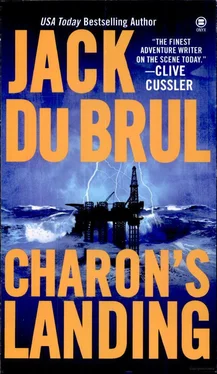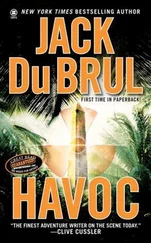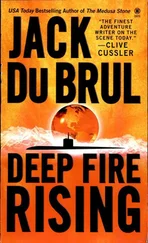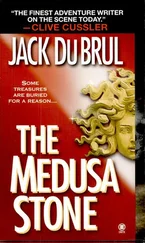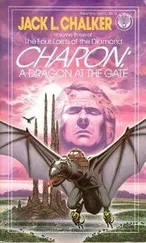Jack Du Brul - Charon's landing
Здесь есть возможность читать онлайн «Jack Du Brul - Charon's landing» весь текст электронной книги совершенно бесплатно (целиком полную версию без сокращений). В некоторых случаях можно слушать аудио, скачать через торрент в формате fb2 и присутствует краткое содержание. Жанр: Триллер, на английском языке. Описание произведения, (предисловие) а так же отзывы посетителей доступны на портале библиотеки ЛибКат.
- Название:Charon's landing
- Автор:
- Жанр:
- Год:неизвестен
- ISBN:нет данных
- Рейтинг книги:5 / 5. Голосов: 1
-
Избранное:Добавить в избранное
- Отзывы:
-
Ваша оценка:
- 100
- 1
- 2
- 3
- 4
- 5
Charon's landing: краткое содержание, описание и аннотация
Предлагаем к чтению аннотацию, описание, краткое содержание или предисловие (зависит от того, что написал сам автор книги «Charon's landing»). Если вы не нашли необходимую информацию о книге — напишите в комментариях, мы постараемся отыскать её.
Charon's landing — читать онлайн бесплатно полную книгу (весь текст) целиком
Ниже представлен текст книги, разбитый по страницам. Система сохранения места последней прочитанной страницы, позволяет с удобством читать онлайн бесплатно книгу «Charon's landing», без необходимости каждый раз заново искать на чём Вы остановились. Поставьте закладку, и сможете в любой момент перейти на страницу, на которой закончили чтение.
Интервал:
Закладка:
The land was a thousand shades of color, from the blinding white of the sand dunes that marched in waves to the distant horizon to the deepest black of the Hajar Mountains across the border in Oman, yet much of the sand was stained pink by iron oxide. It was as if the desert were rusting. The late afternoon temperature hovered above one hundred and ten, and even with the coming evening, it wouldn’t dip more than a few degrees.
The khamsin , the scorching summer wind that tore across the land, was still strong this late in the year. It raked the surface of the earth, gouging it, shaping it as it had for a hundred million years. It forged an uncompromising environment that supported only the most hearty species.
Prince Khalid Al-Khuddari stood proudly in the open desert, the brutal heat raising only a thin layer of sweat under the thin cotton of his bush shirt. He was a creature of the desert, as hard and uncompromising and starkly handsome as the land around him. He was naturally light-skinned, but the time he spent in the desert had darkened him, turning his face and arms a dark mahogany. His high cheekbones and strong, hooked nose made him look like an American Plains Indian, his thick black hair and dark eyes only adding to the allusion.
He was tall, just over six feet, and he held his body erect and alert. In the open V of his shirt, his chest was smooth and hairless, almost like that of a boy, but the muscles stood out sharply. His belly was greyhound thin yet rippled like a streambed. He held his left hand at chest height, his elbow crooked so he could regard the creature perched on his gauntleted wrist. If any animal captured the essence of Khalid Al-Khuddari, it was the saker falcon gripping him so strongly with its talons that he could feel their needle tips piercing the leather of the falconer’s glove.
The saker, the second largest of the species falconidae , stood just over nineteen inches, with a reddish brown body and a neat pale head. Its beak, so sharply curved that it almost touched its breast, was as deadly as a scimitar, while its eyes were arguably the keenest in nature. The bird was known as one of the finest hunters in the world, with a determination and courage that were the basis of legend.
Used for falconry since generations before the horse was domesticated, the saker had the longest history of coexistence with man of any animal except the dog. Considered a sport of the noble elite of Europe since they learned of it during the Crusades, falconry is as much a part of the Arab culture as the five Pillars of Islam. In decline in the West because of an emotional animal rights movement, falconry thrived in the Gulf States. It was a pastime of both the wealthy and the poor. In fact, Khalid had learned it from a desert Bedouin, an elder of one of the tribes that had wandered the Arabian Peninsula since before the Prophet heard the word of God.
This falcon, a female named Sahara, was quiescent, calmly listening to the soothing words of her master, her head covered by an ornate leather hood so that she would not take flight until Khalid was ready to hunt her. Leather jesses tied around her tarsus, the naked part of her legs above her claws, leashed her to Khalid’s glove. He stroked her wings and the bird responded with a quiet kweet kweet , a sure sign of her contentment, much like the purr of a tabby cat.
“Are you ready, my darling?” Khalid asked the raptor, his face so close to the bird that his breath made her shift her weight. The tiny bells around her ankles chimed softly.
Though he felt alone with his falcon in the great desert, Khalid was not. Behind him, under a dazzlingly white bell tent, forty guests watched him from the tables laid specifically for the hunt. He and his guests had just finished a late lunch of lamb grilled over open fires and strong cheeses and dates, washed down with French champagne. Many of the assembled felt that they were emulating their early tribal history. Used to the air-conditioned comfort of Abu Dhabi City, they thought that the afternoon in the open country was a great adventure. That the tent had been set up for them and that a small army of servants ensured that their wineglasses never emptied was lost on them. Their roots had been yanked up by the Western influences that had poured into the country since oil was discovered in 1958.
Khalid looked behind him. Beyond the tent, the road was hidden by a small dune, but he could see the top of the two Daihatsu trucks that had brought the men and equipment for the outing. He knew that there was a fleet of Mercedes limousines near the trucks, their drivers waiting patiently while their pampered charges enjoyed themselves. He did not blame his guests for their wealth and privilege, for he was one of them, but he felt a twinge of disappointment that none of them shared his love of the land that had given them the lifestyle to which they had grown overly accustomed.
The land. Khalid turned back, ignoring the waves of greeting from a few of the women. The land. It gave no indication of the wealth it stored.
The United Arab Emirates had known three great periods of prosperity, once as one of the great pearl-producing areas of the world, once as an active piracy coast, and now as the home of one of the largest oil reserves on the planet. The fact that there were thirty-two billion barrels of oil trapped beneath the coastal plain and shallow offshore shelf of the UAE was not lost to Khalid Al-Khuddari. He knew that the open market price of Brent light sweet crude closed up a dollar and a half the day before, which translated into $750 billion buried in the desert. That wealth was spread among the Emirates’ two hundred thousand citizens, giving them the second highest per capita income in the world.
Khalid tracked these numbers and knew what they meant because he was Abu Dhabi’s Petroleum Minister, the UAE’s official representative to OPEC. Even though all seven of the autonomous Sheikdoms that made up the United Arab Emirates now had Petroleum Ministers, only Abu Dhabi, with the lion’s share of the oil, had the clout to join OPEC. After Kuwait and Saudi Arabia, the UAE possessed more oil than any other nation within the cartel and thus wielded a great deal of power determining oil policy and prices. This power and responsibility were newly laid upon Khalid’s shoulders following the untimely death from lung cancer of Abu Dhabi’s previous Oil Minister.
His elevation to such a position of authority was highly unusual, not only because of his youth — Khalid would turn forty in two years — but also because he was not a member of Abu Dhabi’s ruling family. He wasn’t even part of the same tribe as the Crown Prince Shaik. Khalid’s people were the wanderers of the open desert, the Bedouin who knew no border but the ones their herds of goats and camels established. They owed no loyalty or allegiance to any but their own and the Sharia , the law of Islam.
Khalid’s father may not have owed allegiance to any man, but the ruler of Abu Dhabi owed the Al-Khuddari family a great debt because of the support they had given during the early years of the UAE’s independence from Britain. Because of this, Khalid was given a European education, Eton, Cambridge, and the London School of Economics, and when he returned to his homeland, his sharp mind and keen negotiation skills launched him on the fast track within the Emirates’ Oil Ministry.
The death of the previous Minister, following so closely after the American President’s announcement to suspend oil imports, had thrown the Ministry into chaos. Old guard clashed with the new generations of technocrats who had grown up with the affluence oil had brought, never knowing the poverty that had gripped the region prior to World War II. In the end, it was decided to turn the job over to someone outside of the ruling family and thus disassociated from the familial infighting.
Читать дальшеИнтервал:
Закладка:
Похожие книги на «Charon's landing»
Представляем Вашему вниманию похожие книги на «Charon's landing» списком для выбора. Мы отобрали схожую по названию и смыслу литературу в надежде предоставить читателям больше вариантов отыскать новые, интересные, ещё непрочитанные произведения.
Обсуждение, отзывы о книге «Charon's landing» и просто собственные мнения читателей. Оставьте ваши комментарии, напишите, что Вы думаете о произведении, его смысле или главных героях. Укажите что конкретно понравилось, а что нет, и почему Вы так считаете.
